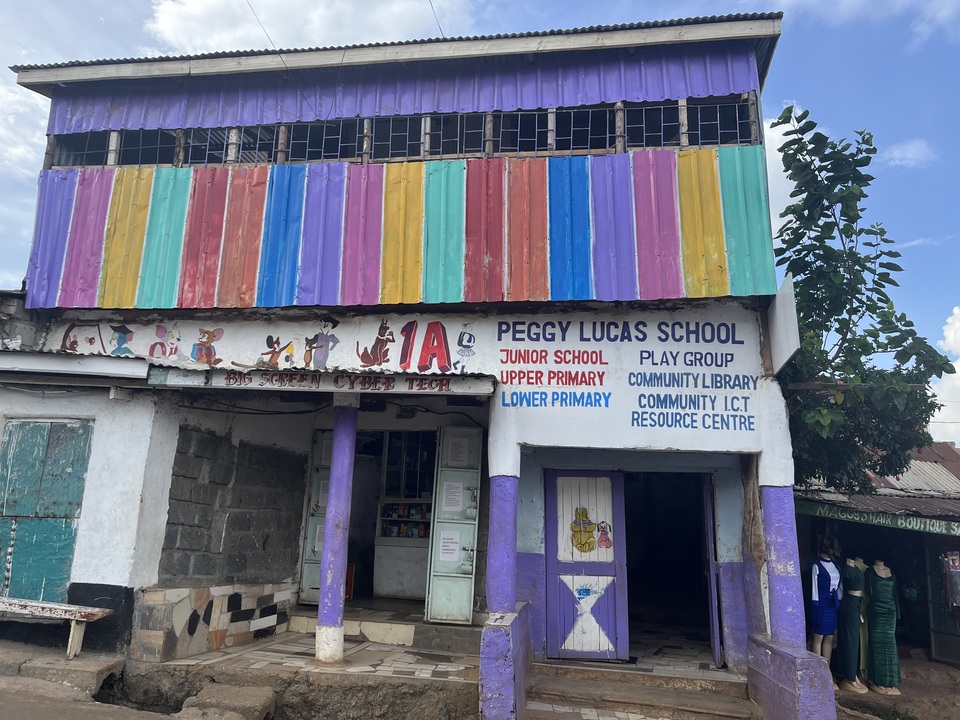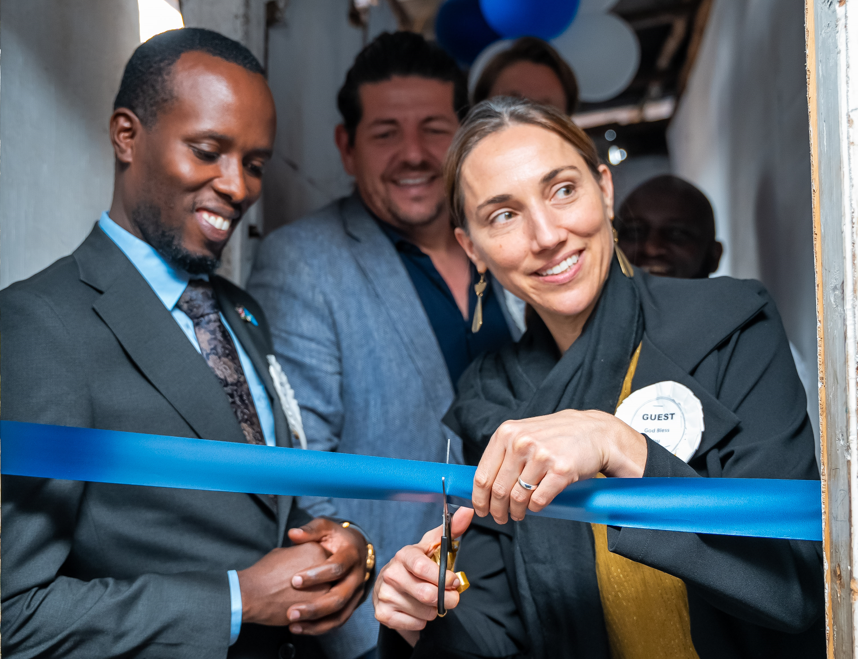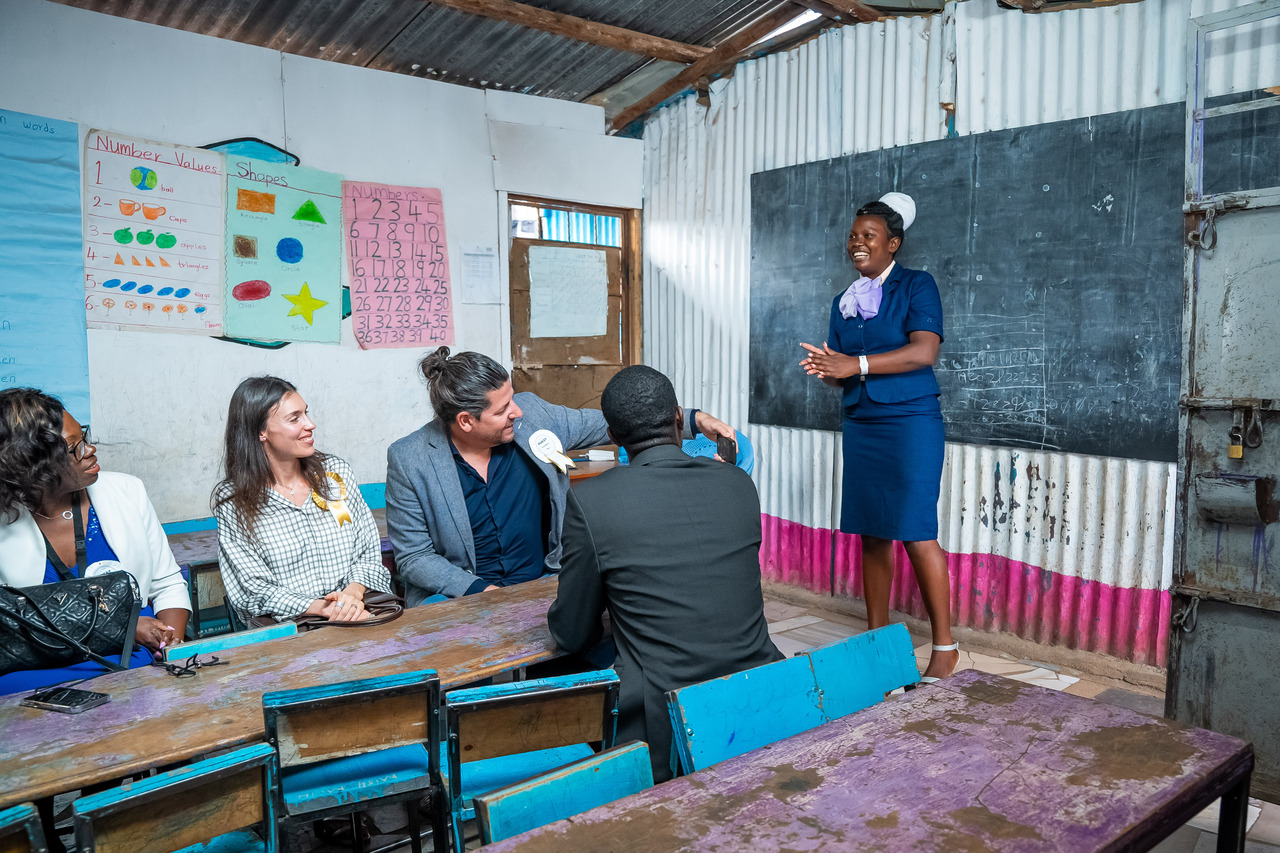

The pupils come from this community, and though the school started three years ago, their prospects seemed limited by the environment.
“At first, maybe they just used to hear that there is a computer, but they could not have direct access to it,” Teacher Alice Babu, the principal, said.
They risked being left behind as Kenya adopted competency-based education, whose curriculum requires learners to be integrated into the technology world. But a Belgian company intervened, donating 15 computers to help it — in the words of the company’s name — Close the Gap.
The comp lab is tucked away in a corner of the upper floor, down a narrow corridor overlooking the shantytown, which is surrounded by highrise estates in the horizon.
Though classes started last year, it was officially inaugurated on Friday last week. On hand to launch it was Hub.Brussels CEO Isabelle Grippa and Close the Gap founder Baron Olivier Eynde.
“For us, the aim is to improve the lives of citizens, the lives of kids,” Grippa said.
“I’m a mother of six kids,” she added to applause, “so for me, it’s one of the biggest moments in Kenya to be here with you, dear kids and dear teachers.”

Ucesco Africa CEO Kingsley Nyandika pointed out it was a big moment for the school, too.
“When Olivier was coming to our school, I was really worried about how he’s going to judge us because we are a slum and the place looks like it’s not secure,” he said.
“But even if you are living in this area, it’s a nice place. People here are very lovely. We love visitors.”
Especially ones who change lives. “We have been teaching using the smartphones of our teachers,” he said. “But today, our kids are enjoying this wonderful opportunity.”
Deputy principal Peter Obutu, who doubles up as the computer teacher, said the comp lab has benefited both pupil and the community.
The school offers the community the seven basic computer packages at a certain price, and to pupils, it teaches courses as per the new curriculum.
“At Grade 4, they’re taught the different parts of the computer. When you move to Grade 5, you are taught how to use Microsoft Word. Then at Grade 6, you are taught how to use Microsoft Excel,” he said, before inviting the pupils to showcase their Word skills.

INVESTING IN THE FUTURE
What was remarkable about this charitable initiative was that the donated computers were not new; they were all refurbished. Close the Gap started collecting end-of-life electronics in 2003, sourcing them from European and international companies, upcycling them and reselling them in Africa.
The choice of Kibera for the computer lab came naturally to Eynde as a social entreprenue and also as part of corporate social responsibility for Close the Gap.
“And the youth of today are the future of tomorrow,” he said.
Close the Gap has been in Kenya for seven years, where it has set up a Circular Economy Hub in Mombasa. It works with local partners like Weee (Waste electrical and electronic equipment) to collect lost electronic waste.
Under its CSR, Close the Gap equips IT facilities, targeting social and educational projects such as Peggy Lucas Centre. To date, it has received 1.6 million devices, which have been distributed to 6 million beneficiaries.
For Teacher Alice, even as the school contends with leaking roofs and limited resources, the technological leap has been a godsend.
And the pupils love it. “Once you tell the learners today, we are going to have a practical lesson from the computer lab, everyone is active, compared to the lessons we have in the normal classes,” she said.
The school may have seemed ambitious in its humble beginnings, but now it is truly living up to its motto: ‘The future begins here.’
Tom Jalio is the features editor of the
Star and producer of the ‘Jalio Tales’ YouTube channel

















![[PHOTOS] Betty Bayo laid to rest in Kiambu](/_next/image?url=https%3A%2F%2Fcdn.radioafrica.digital%2Fimage%2F2025%2F11%2F3b166e2e-d964-4503-8096-6b954dee1bd0.jpg&w=3840&q=100)
